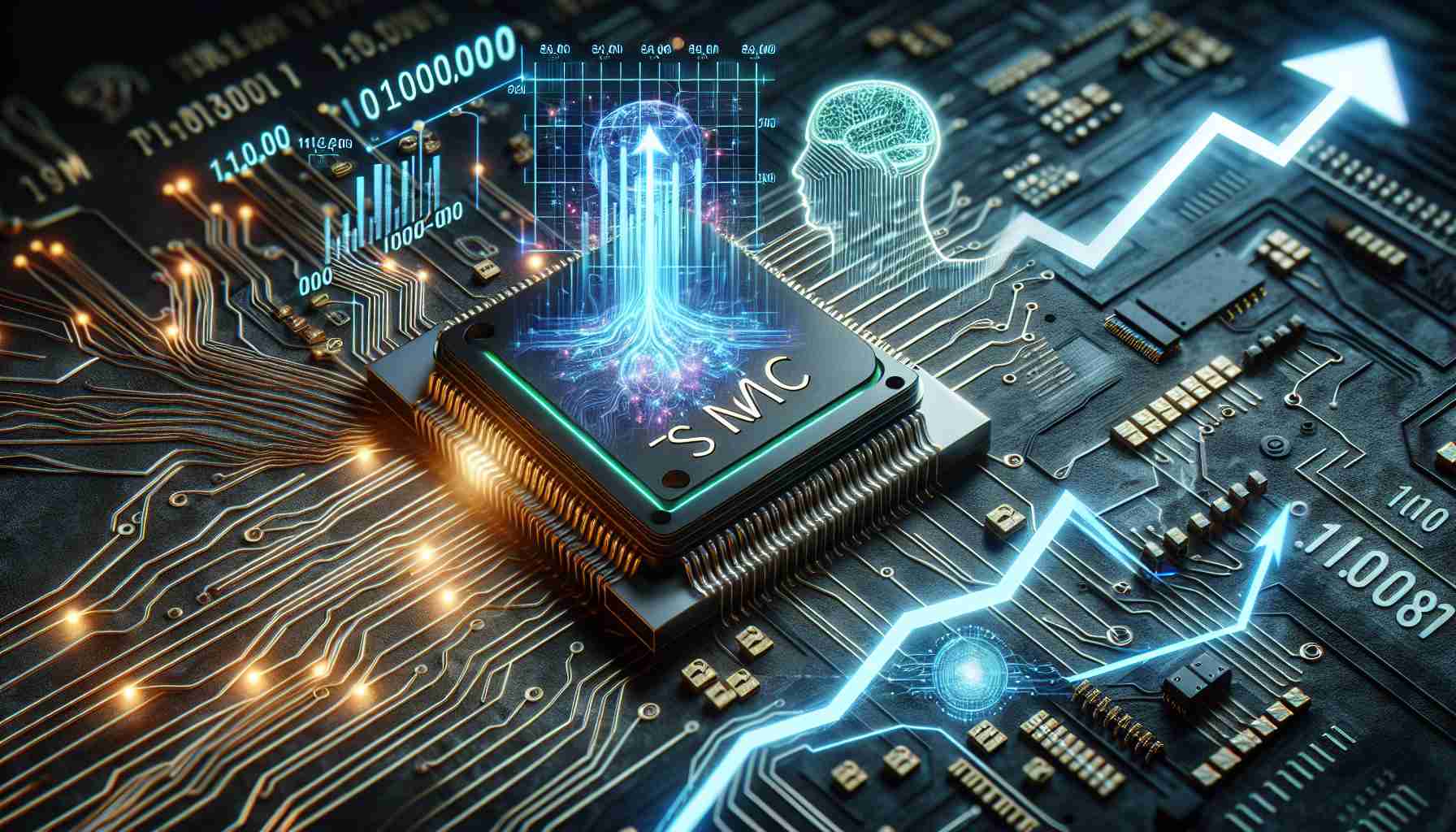Surging demand for advanced artificial intelligence (AI) chips has resulted in a remarkable ascendancy of semiconductor stocks over the last twelve months. The PHLX Semiconductor Sector index is a testament to this trend, boasting a 57% gain within a year. The growth trajectory of Taiwan Semiconductor Manufacturing Co. (TSMC), a foundry titan, is even more impressive with its stock soaring by 71% in the same timeframe. Consequently, TSMC’s market valuation has swollen to an impressive $910 billion, positioning it as the world’s eighth-largest company and just a short leap away from the trillion-dollar market cap milestone.
The previous year was a challenging one for TSMC, marked by a downturn in smartphone and PC sales that culminated in a 9% slide in revenue and a 21% decrease in adjusted earnings per share. In stark contrast, TSMC’s financial health in 2024 paints a different picture, with a vigorous 30% year-over-year increase in its monthly revenue reported for May, and a 27% growth in revenue over the first five months—far exceeding analysts’ expectations.
TSMC’s success may be partly attributed to its domination of the third-party foundry market with a 61% share, far ahead of its closest competitor, Samsung. The company’s state-of-the-art technology enables the production of highly efficient AI chips used in sectors such as data centers, smartphones, and PCs, utilizing advanced 3-nanometer (nm), 5nm, and 7nm process nodes. Projections reveal robust growth for these advanced chips, with AI server GPUs forecast to increase annually by 30% through to 2031.
Furthermore, TSMC has strategic growth plans in place, including a 50% expansion of advanced chip node production capacity by 2027 and new manufacturing facilities in the U.S. funded by the CHIPS Act. With TSMC’s contributions to the burgeoning AI markets and its aggressive expansion strategies, its projection to surpass Wall Street’s $85 billion revenue estimate for 2024 seems plausible. Should TSMC maintain its current 12 times sales valuation, a trillion-dollar market cap could be within reach in the next year, catapulting the company into a select club of global corporate giants.
**Most Important Questions and Answers:**
1. Why has TSMC experienced significant growth recently?
– TSMC’s recent growth is due to the surging demand for advanced artificial intelligence (AI) chips, where it holds a dominant position with its state-of-the-art technology for manufacturing efficient AI chips used in various sectors.
2. What is TSMC’s market share in the foundry sector?
– TSMC holds a commanding 61% share of the third-party foundry market, outpacing its closest competitor, Samsung.
3. What are TSMC’s growth plans?
– TSMC plans to increase its advanced chip node production capacity by 50% by 2027 and is setting up new manufacturing facilities in the U.S., financially supported by the CHIPS Act.
4. What challenges does TSMC face in reaching a trillion-dollar valuation?
– Challenges could include maintaining its technological edge, coping with global economic fluctuations, unpredictable demand for semiconductor products, regional geopolitical tensions, and competition from other semiconductor manufacturers.
**Key Challenges and Controversies:**
– Geopolitical Risk: As a Taiwanese company, TSMC is at the center of geopolitical tensions between China and the United States, which could impact its operations and supply chain.
– Technological Leadership: To sustain its growth, TSMC must continue to lead in manufacturing technology against aggressive competitors like Samsung Electronics and Intel.
– Supply Chain Disruptions: The global semiconductor industry has faced supply chain disruptions, which could affect TSMC’s ability to meet demand.
**Advantages:**
– Technological Edge: TSMCs advanced 3nm, 5nm, and 7nm process nodes place it at the forefront of the industry.
– Market Demand: A growing demand for AI chips and servers puts TSMC in a position to capitalize on market trends.
– Strategic Expansion: TSMC’s international expansion, including investments in the U.S., diversifies its manufacturing base and aligns with geopolitical interests.
**Disadvantages:**
– Concentration Risk: Over-reliance on advanced chips for AI could be risky if market demand shifts or if there is rapid technological change.
– High CapEx: Large capital expenditures required to maintain technological leadership could impact profitability.
– Geopolitical Tensions: Operating from Taiwan subjects TSMC to the risk of political tensions, particularly with China.
For more information on TSMC, you can visit the company’s website: TSMC. Please note that accessing external links provided should further confirm their validity and relevance to the subject matter.
